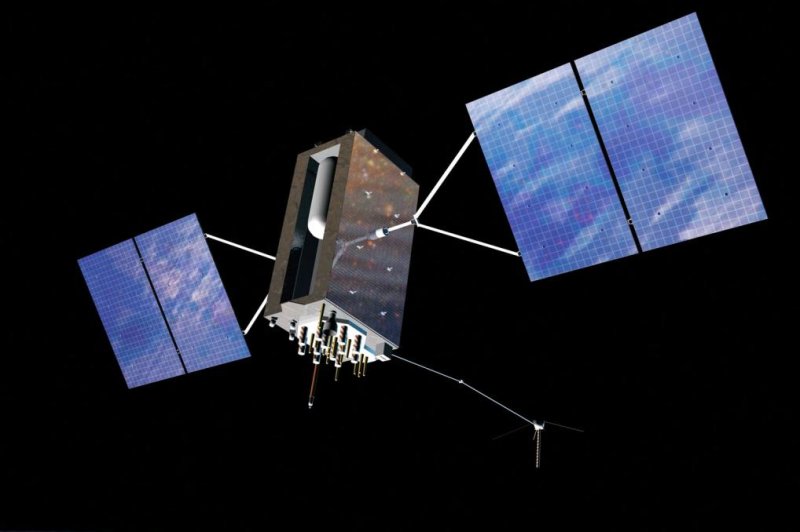An artist's rendering of a new GPS III satellite, which is expected to be the most advanced, secure version of the system launched by the U.S. Air Force. Photo courtesy of Lockheed Martin
Sept. 27 (UPI) -- Lockheed Martin has received a contract for the first two GPS IIIF satellites, Space Vehicles 11 and 12, which are follow-ons to the initial 10-satellites of the new GPS III constellation.
The contract, announced Wednesday by the Department of Defese, provides for engineering, space vehicle test bed and simulators, and production of GPS IIIF Space Vehicles 11 and 12. It also includes options for the production of up to 22 GPS III Space Vehicles, storage, and launch and on-orbit services.
Work will be performed in Littleton, Colo., and is expected to be completed by August 2027. Air Force fiscal 2018 research, development, test and evaluation funds in the amount of $10.2 million are being obligated at the time of award.
Earlier this month, the Air Force awarded Lockheed with a $7.2 billion contract for 22 GPS IIIF follow-on satellites that will be part of the overall GPS III constellation.
The first GPS III satellite was declared ready for launch in September 2017, and is in Cape Canaveral, Fla., awaiting its expected launch in December. In August, a second satellite was also declared ready and is scheduled to be launched in 2019. Five more of the satellites are in various stages of construction and assembly.
GPS III will have three times better accuracy and up to eight times improved anti-jamming capabilities, according to Lockheed Martin.
The new L1C civil signal will allow it to coordinate with other international global navigation satellites like the European Union's Galileo.
The new satellites anti-jamming systems will be part of it's Regional Protection Capability. The systems are designed to protect access to GPS signals by U.S. and allied militaries in the face of electronic warfare attempts by enemy forces.















